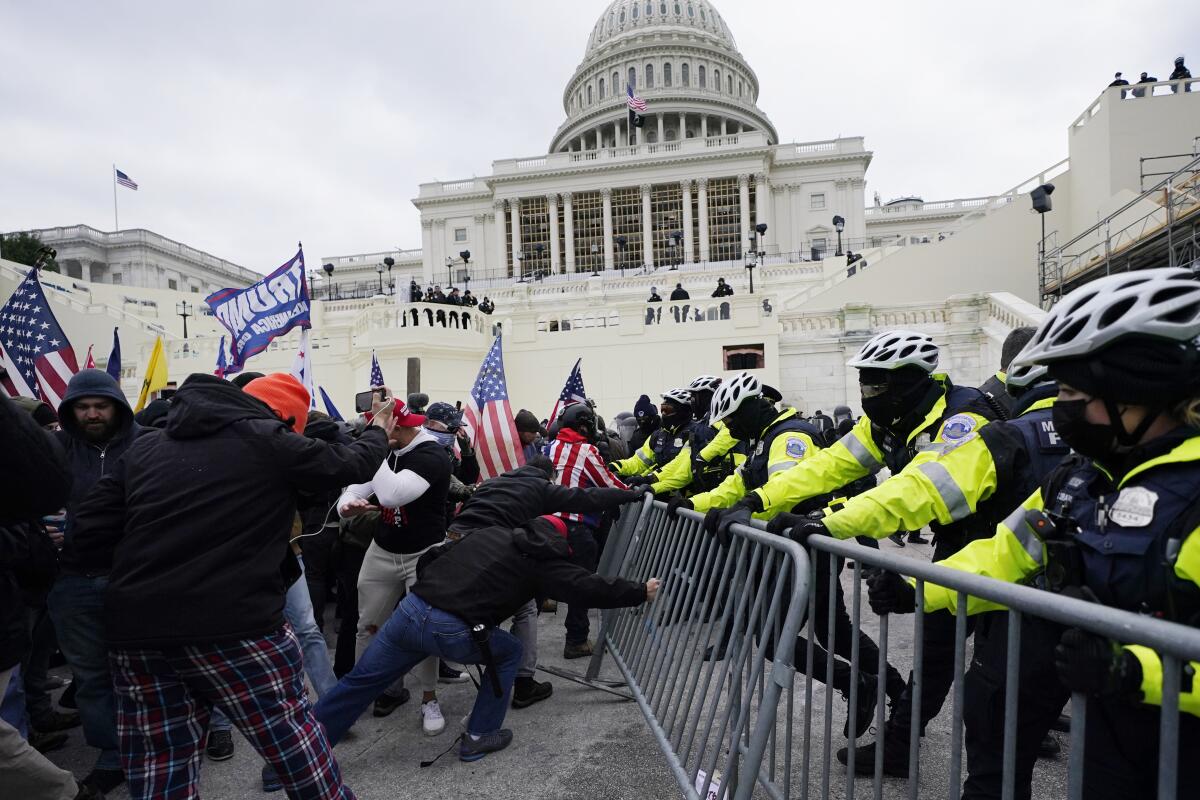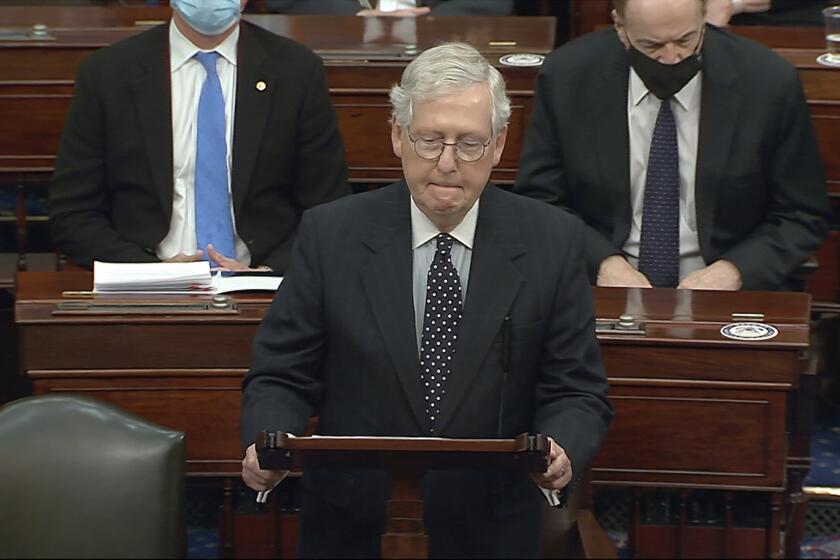Authorities examine threats made against lawmakers ahead of impeachment trial

- Share via
WASHINGTON — Federal law enforcement officials are examining a number of threats aimed at members of Congress as the second impeachment trial of former President Trump nears, including ominous chatter about killing legislators or attacking them outside the Capitol, a U.S. official told the Associated Press.
The threats, and concerns that armed protesters could return to attack the Capitol anew, have prompted U.S. Capitol Police and other federal law enforcement to insist that thousands of National Guard troops remain in Washington as the Senate moves forward with plans for Trump’s trial, the official said Sunday.
The shocking Jan. 6 insurrection at the Capitol by a pro-Trump mob prompted federal officials to rethink security in and around its landmarks, resulting in an unprecedented lockdown for President Biden’s inauguration. Although the event went off without any problems, and armed protests around the country did not materialize, the threats to lawmakers ahead of Trump’s trial exemplify the continued potential for danger.
Similar to those intercepted by investigators ahead of the inauguration, the threats that law-enforcement agents are tracking vary in specificity and credibility, said the official, who had been briefed on the matter. Mainly posted online and in chat groups, the messages have included plots to attack members of Congress during travel to and from the Capitol complex during the trial, according to the official.
The official was not authorized to discuss an ongoing investigation publicly and spoke to the AP on condition of anonymity.
Law enforcement officials are already starting to plan for the possibility of armed protesters returning to the nation’s capital when Trump’s Senate trial on a charge of inciting a violent insurrection begins the week of Feb. 8. It would be the first impeachment trial of a former U.S. president.
Senate Majority Leader Mitch McConnell is not ruling out that he might vote to convict the now twice-impeached president.
Thousands of Trump’s supporters descended on the Capitol earlier this month as Congress met to certify Biden as the winner of the 2020 presidential race. More than 800 are believed to have made their way inside during the violent siege, pushing past overwhelmed police officers. The Capitol Police said they planned for a protest, not a riot, and were caught off guard despite intelligence suggesting that the gathering would devolve into violence. Five people died, including a Capitol police officer who was struck in the head with a fire extinguisher.
Though much of the security apparatus set up after the riot and ahead of Biden’s inauguration — including scores of military checkpoints and hundreds of additional law-enforcement personnel — is no longer in place, about 7,000 members of the National Guard around Washington will remain to assist federal law enforcement, officials said.
The Guard Bureau said that fewer than 20,000 Guard members remained in Washington as of Sunday. All but about 7,000 of those will go home in the coming days. The Guard Bureau said the number would continue to ebb in the coming weeks to about 5,000 members who are expected to stay in Washington until mid-March.
More than 130 people have been charged by federal prosecutors in connection with their roles in the riot. In recent weeks, others have been arrested after threats were posted online against members of Congress.
Those include a Proud Boys supporter who authorities say threatened to deploy “three cars full of armed patriots” to Washington, stockpiled military-style combat knives and more than 1,000 rifle rounds in his New York home and threatened harm against newly installed Democratic Sen. Raphael Warnock, Georgia’s first Black senator. A Texas man arrested this week is accused of taking part in the Capitol riot and posting violent threats online, including a call to assassinate Democratic Rep. Alexandria Ocasio-Cortez of New York.
More to Read
Sign up for Essential California
The most important California stories and recommendations in your inbox every morning.
You may occasionally receive promotional content from the Los Angeles Times.











